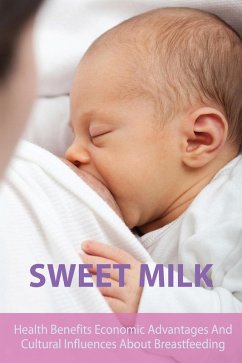Many medical experts, including the American Academy of Pediatrics and the American College of Obstetricians and Gynecologists, strongly recommend breastfeeding.
From a biological perspective, breasts are indisputably for the use of nourishment of the young. This can be seen by how mammary glands are used by every other species other than humans. Humans are the only species that also looks at breasts from a cultural perspective. That perspective is where the debate of breastfeeding occurs. There is no debate that if given the option to breastfeed, breastfeeding is the best choice for the development of infants because breast milk has been adapted for the human physique. Despite the health benefits associated with breastfeeding and the economic disadvantages that accompany the use of infant formula, social influences have caused a shift in neonatal health in the United States from wet‐nursing to breastfeeding to now formula feeding. The gathering data about this topic was primarily from previous studies and reports in the same method as a literature review. The findings of this paper support the notion that breastfeeding nourished infants best; however, cultural influences cause mothers to choose bottle-feeding more often due to factors such as an increase of women in the workforce, the sexualization of breasts, and the impact of the formula industry.
Dieser Download kann aus rechtlichen Gründen nur mit Rechnungsadresse in A, B, CY, CZ, D, DK, EW, E, FIN, F, GR, H, IRL, I, LT, L, LR, M, NL, PL, P, R, S, SLO, SK ausgeliefert werden.


